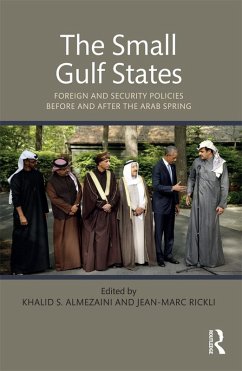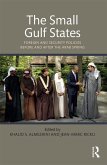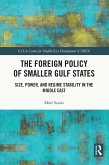The Small Gulf States analyses the evolution of these states' foreign and security policies since the Arab Spring. Focusing on Oman, Qatar and the UAE, it explores how these states have been successful in guaranteeing their survival and also in increasing their influence. It then discusses the security dilemmas small states face and suggests foreign and security policy options, ranging from autonomy to influence, in order to deal with this. The book also looks at the influence of international actors on the policies of these states. It concludes by discussing the peculiarities and contributions of the Gulf States for the study of small states' foreign and security policies in general.
Dieser Download kann aus rechtlichen Gründen nur mit Rechnungsadresse in A, B, BG, CY, CZ, D, DK, EW, E, FIN, F, GR, HR, H, IRL, I, LT, L, LR, M, NL, PL, P, R, S, SLO, SK ausgeliefert werden.









